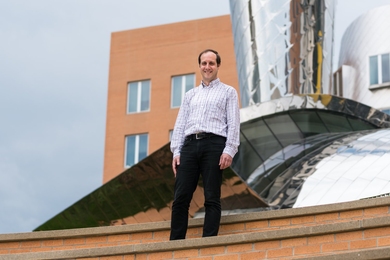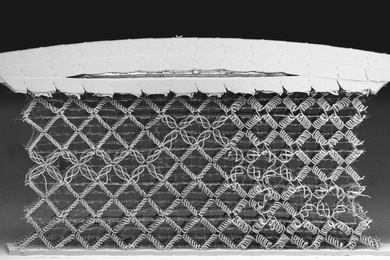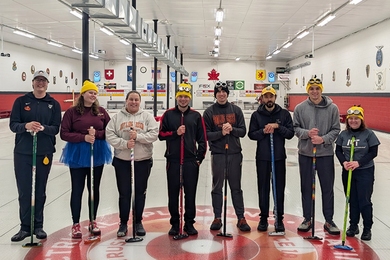Theater may not be the first thing that comes to mind when people think of MIT, but the music and theater arts section, which has been a part of the institution since 1987, sees a steady stream of student interest.
Classes in technical theater offer instruction in the creation of scenery, costumes, lighting and sound effects. These courses used to attract mainly juniors and seniors because students wouldn't elect to take it until they had fulfilled their academic requirements, but now that seems to be changing, according to Mike Katz, technical instructor in theater arts.
"We're seeing a greater percentage of freshmen in the stagecraft class," said Katz, who will give a talk on "The Science of Theater" at the Stata Center this Sunday, March 26.
According to Katz, in the 2005-06 academic year, underclassmen comprised almost half of his class, the highest percentage of any year from 1998 until the present. In previous years, underclassmen averaged only about 32 percent of the class.
Admissions Office Communications Manager Ben Jones confirms that in recent years there has been a lot of student interest in technical theater. "I think it has to do with the fact that we look for creative kids who embrace the MIT motto ("mind and hand"), and technical theater seems to go hand in hand with that," Jones said.
Perhaps surprisingly, technical theater at MIT is not as technological as other areas at the Institute. Technical coordinator Bill Fregosi asks his students to create things with their own hands rather than computer-aided design.
He said he wants them to be involved physically with the work and mentally with the text of the shows they produce. "Maybe we're the essence of MIT," said Fregosi, referring to the "mind and hand" motto.
MIT's theater arts program is not a professional track program; students can minor, but not technically major in theater. Katz believes this actually benefits both the students and the section since it means that the productions at MIT are designed and built by engineers, physicists, and others with technical expertise outside of theater who understand things like the physics behind lighting design.
"I don't think the majority of MIT students even know anything about the theater department and its technical classes," said Matt Abernathy, a senior physics major who took a class in costuming to fulfill his humanities requirement. "If they did, I think more students would take technical theater."
On Sunday, March 26, Katz will conduct a F.A.S.T. (Family Adventures in Science and Technology) program titled, "The Science of Theater," exploring the physics and mechanical engineering involved in staging a show. The presentation, which is free and open to the public, will be held from 2 to 4 p.m. in Room E32-141 of the Stata Center. The MIT Museum is sponsoring the event.
A version of this article appeared in MIT Tech Talk on March 22, 2006 (download PDF).





